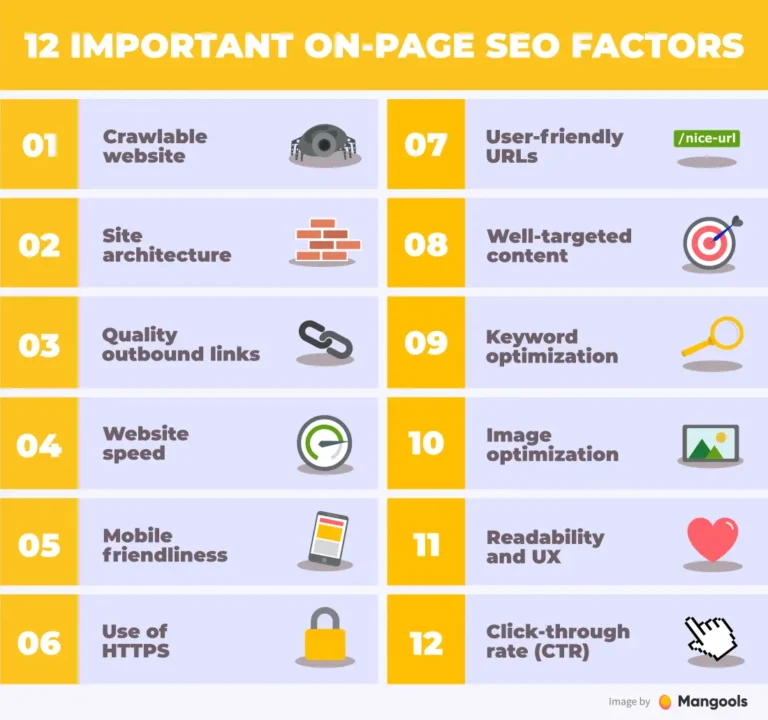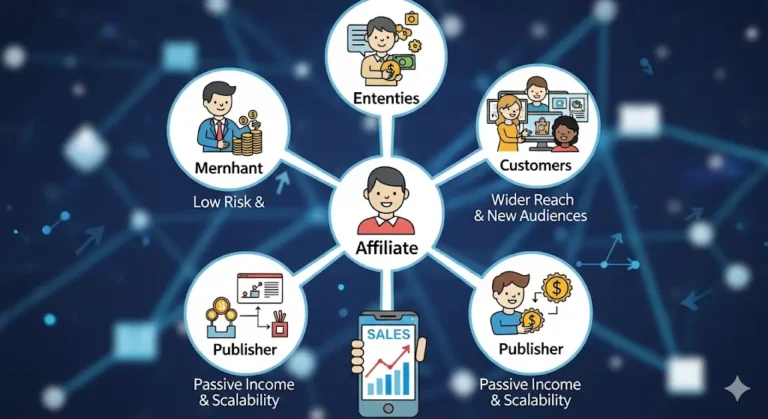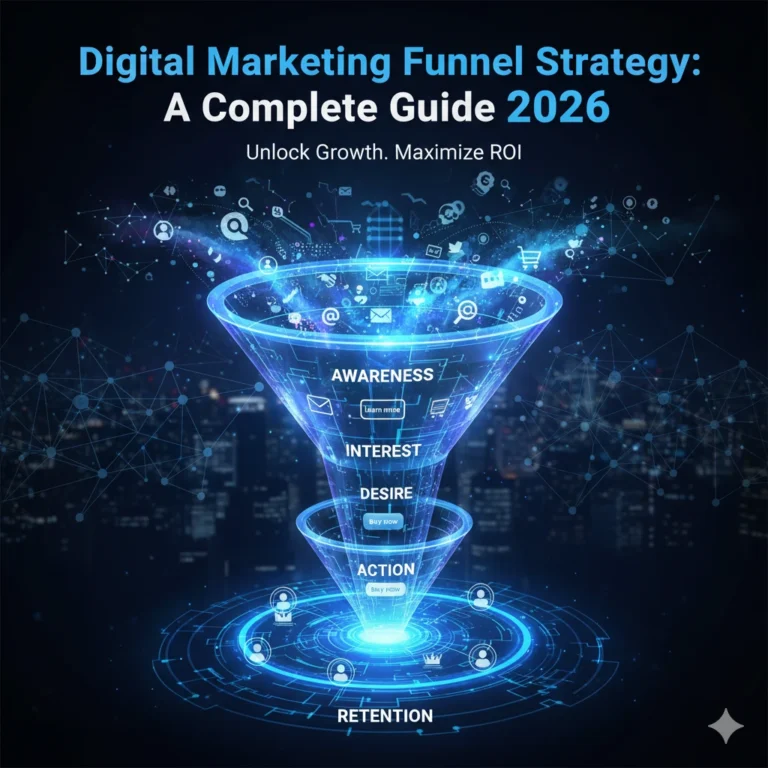Understanding the Disadvantages of Digital Marketing in 2025
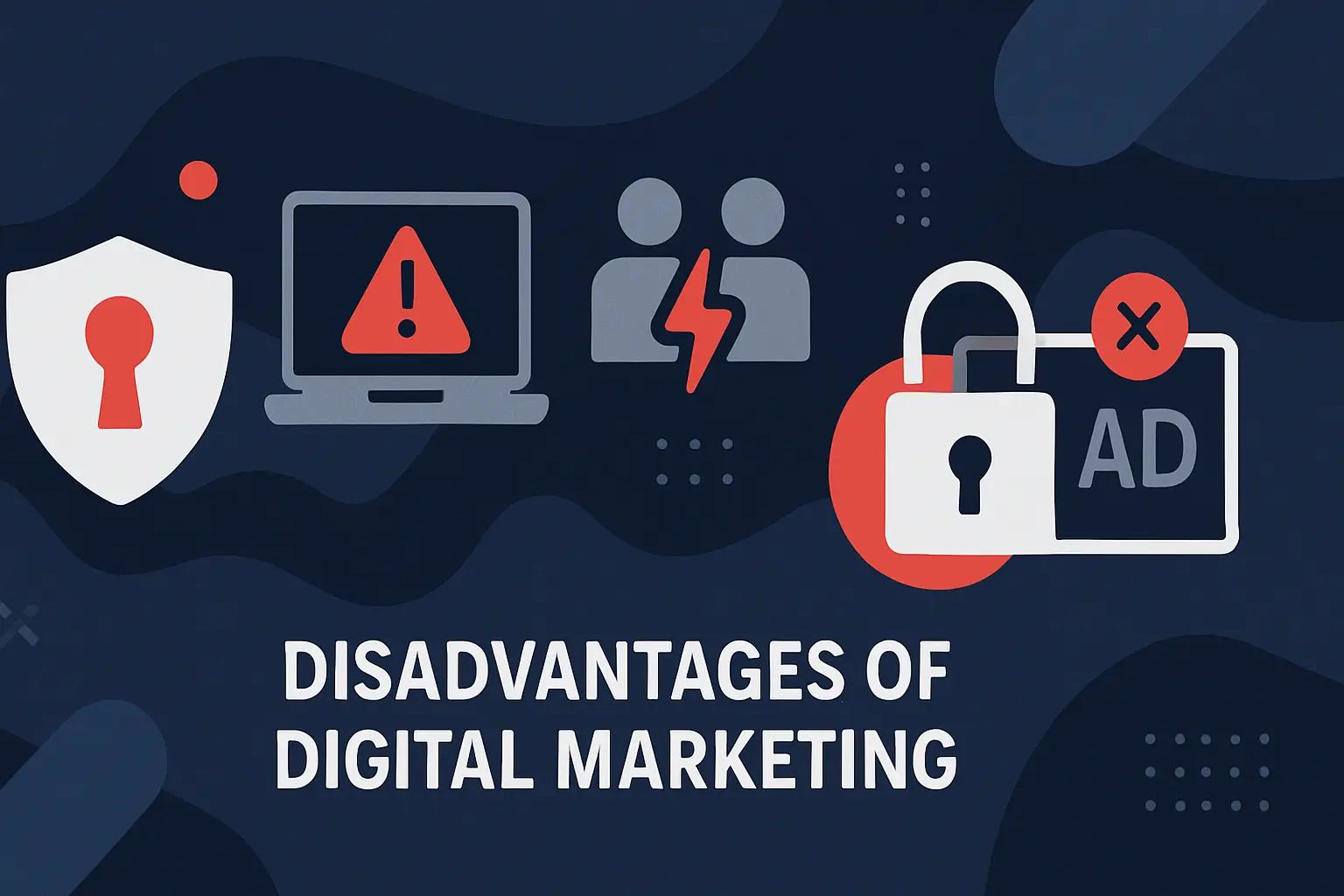
The disadvantages of digital marketing are becoming increasingly apparent as more businesses shift their strategies online. While digital platforms offer tremendous opportunities, they also present unique challenges that can significantly impact your marketing success and business growth.
Digital marketing has revolutionized how businesses connect with customers, but it’s not without serious drawbacks. From security vulnerabilities to intense competition, understanding these limitations is crucial for developing effective marketing strategies. Let’s explore the key disadvantages that every marketer should know about.
Major Security and Privacy Concerns
One of the most significant disadvantages of digital marketing for businesses involves cybersecurity threats and privacy issues. Digital platforms are constantly under attack from hackers and cybercriminals who target sensitive customer data.
Data breaches can devastate your business reputation overnight. When customer information gets compromised, it destroys trust and can result in costly legal consequences. Companies face hefty fines under regulations like GDPR, which can reach up to 4% of global revenue for non-compliance.
Privacy concerns are escalating among consumers. Many people feel uncomfortable with invasive data collection practices and targeted advertising. This growing awareness is leading to stricter regulations and increased scrutiny of marketing practices.
Your business must invest heavily in security measures, including firewalls, encryption, and antivirus software. These technological requirements add significant costs to your marketing budget and require ongoing maintenance.
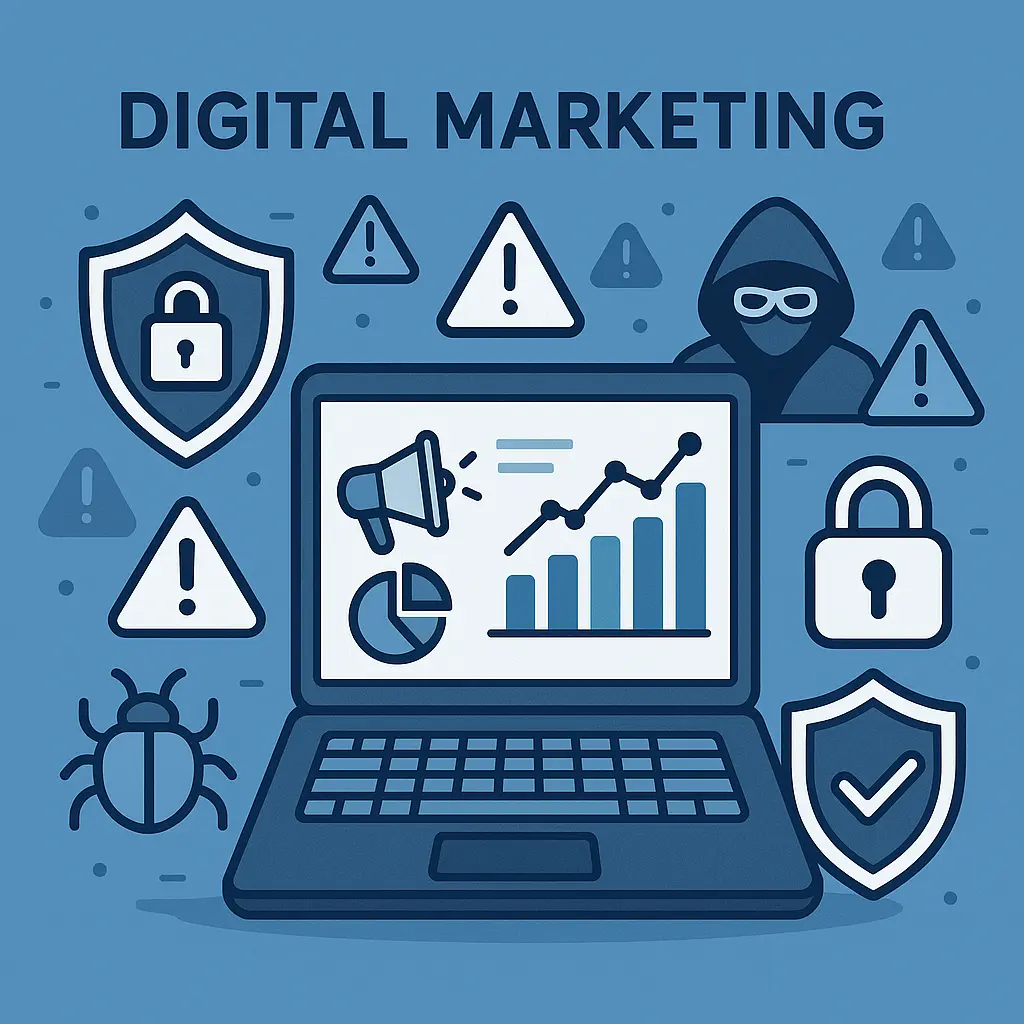
Intense Competition and Market Saturation
The disadvantage of digital marketing includes facing overwhelming competition from businesses worldwide. Unlike traditional marketing which has its own disadvantages and where competition was often limited by geography, online marketing opens the floodgates to global competitors.
Small businesses struggle to compete against established brands with larger marketing budgets. The digital space is crowded, making it extremely difficult to stand out and capture audience attention. Every business is fighting for the same limited online real estate.
Search engine optimization becomes increasingly challenging as more companies target the same keywords. Paid advertising costs continue rising due to increased demand for digital ad space. This creates a scenario where only businesses with substantial budgets can maintain visibility.
Algorithm changes on platforms like Google and Facebook can instantly destroy your visibility. What worked yesterday might not work tomorrow, requiring constant adaptation and strategy adjustments. This unpredictability makes long-term planning difficult.
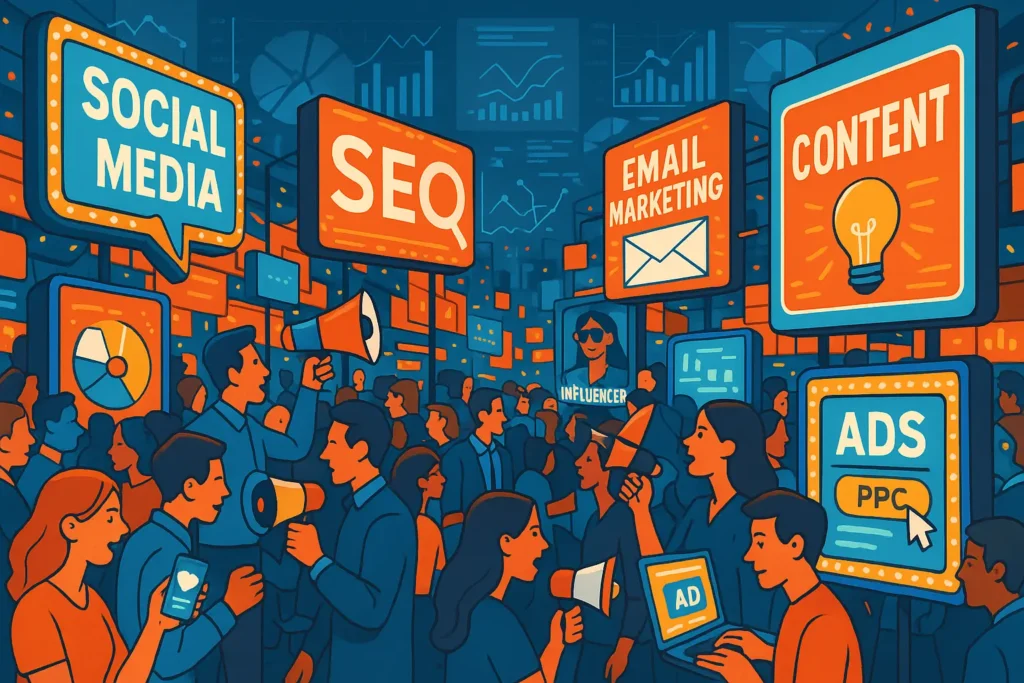
Technology Dependence and Technical Challenges
Dependent on technology represents a fundamental weakness of digital marketing. Your entire marketing operation relies on complex technical systems that can fail without warning.
Website crashes, server downtime, or platform outages can completely halt your marketing efforts. These technical failures result in immediate revenue loss and damaged customer relationships. You’re essentially putting all your eggs in one digital basket.
Constant technological evolution demands continuous learning and adaptation. Marketing professionals must stay updated with new tools, platforms, and techniques. This requires significant time investment and ongoing training costs.
Small businesses often lack the technical expertise needed for effective digital marketing. Managing SEO, analytics, social media, and content creation requires diverse skill sets that many companies don’t possess internally. Hiring specialists or agencies adds substantial costs.
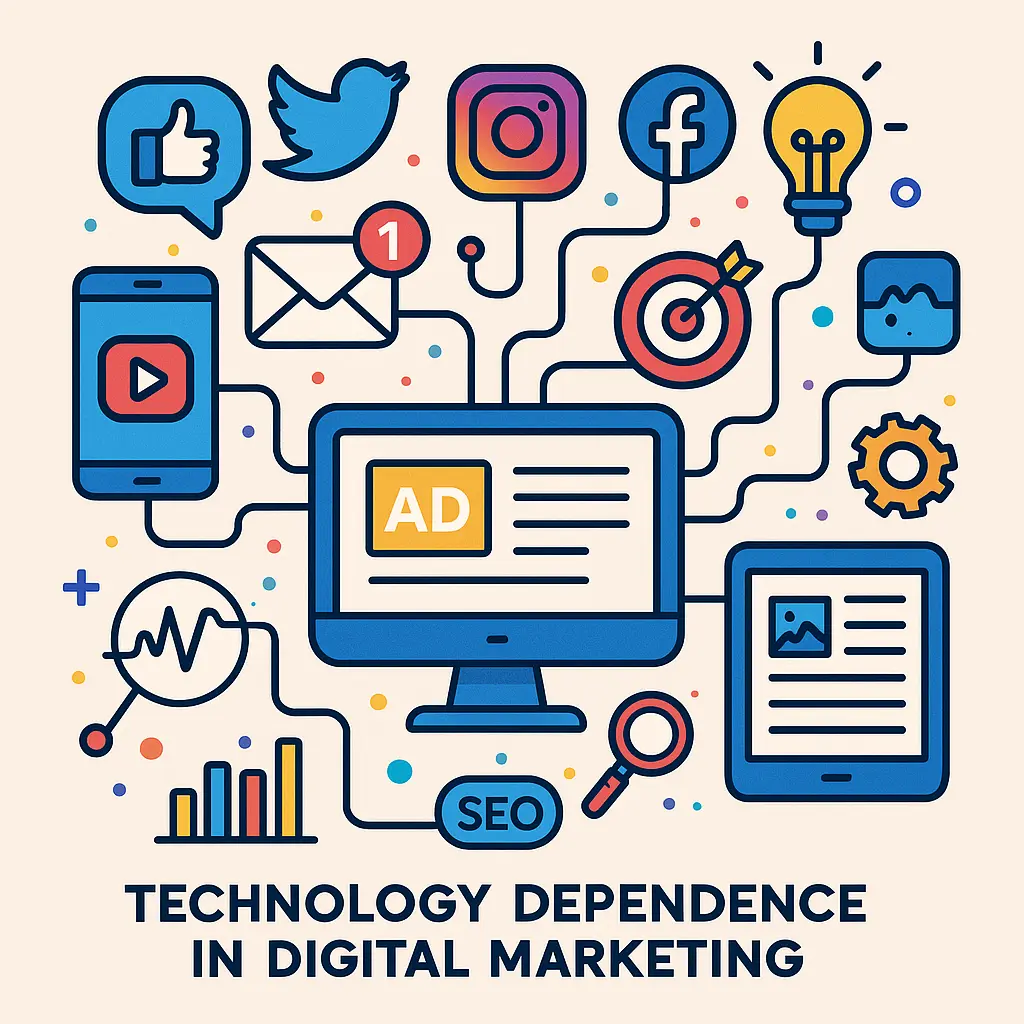
Time-Intensive Nature of Digital Marketing
What are the disadvantages of digital marketing when it comes to time management? Digital marketing is extremely time-consuming and requires constant attention to deliver results.
Content creation demands significant time investment. Writing blog posts, creating social media content, designing graphics, and producing videos requires dedicated resources. Quality content takes time to research, create, and optimize properly.
Social media management alone can consume hours daily. Responding to comments, engaging with followers, and monitoring brand mentions requires continuous effort. This ongoing commitment can overwhelm small business owners.
Campaign monitoring and optimization need constant attention. Analyzing performance data, adjusting strategies, and testing new approaches takes considerable time. Without this attention, your campaigns will underperform.
Negative Feedback and Reputation Management Issues
Online platforms amplify negative feedback, making reputation management extremely challenging. Disadvantages of digital media marketing include the rapid spread of complaints and criticism across multiple channels.
Dissatisfied customers can easily share negative experiences on review sites, social media, and forums. These complaints remain visible indefinitely and can influence potential customers’ purchasing decisions. One viral negative review can damage your brand reputation significantly.
Managing online reputation requires constant monitoring and quick responses. You must actively track mentions across numerous platforms and address issues promptly. This reactive approach can be stressful and resource-intensive.
Competitors or malicious actors can engage in negative campaigns against your brand. Fake reviews, negative comments, and anti-brand activities can harm your online presence. Fighting these attacks requires time, effort, and sometimes legal action.
High Initial Investment and Hidden Costs
Despite being marketed as cost-effective, digital marketing often requires substantial upfront investments. The disadvantages of digital marketing pdf studies show that initial setup costs can be prohibitive for small businesses.
Professional website development, marketing automation tools, and analytics software require significant investment. Quality digital marketing platforms charge monthly subscription fees that add up quickly. These recurring costs can strain small business budgets.
Paid advertising costs continue rising across all major platforms. Google Ads, Facebook advertising, and other PPC campaigns require substantial budgets to achieve meaningful results. Without adequate funding, your ads may not reach enough people to generate returns.
Training staff or hiring digital marketing experts adds another layer of expense. The skills required for effective online marketing are specialized and command high salaries. Many businesses underestimate these human resource costs.
Lack of Human Touch and Personal Connection
Digital marketing lacks the emotional connection possible with traditional marketing methods. Cons of digital marketing include the absence of face-to-face interactions that build trust and relationships.
Automated marketing messages often feel impersonal and generic. Customers increasingly crave authentic, personal connections with brands. Digital channels struggle to replicate the warmth and trust built through personal interactions.
Content marketing efforts can feel mechanical and sales-focused rather than genuinely helpful. Without human interaction, it’s difficult to understand customer emotions and respond appropriately. This disconnect can lead to misunderstandings and lost opportunities.
Social media marketing creates an illusion of connection while maintaining emotional distance. Despite having thousands of followers, brands often struggle to create meaningful relationships with their audience. Engagement metrics don’t always translate to genuine loyalty.
Ad Blocking and Banner Blindness
Modern consumers actively avoid digital advertising through ad blockers and banner blindness. This presents significant disadvantages of digital marketing for businesses trying to reach their target audience.
Ad blocking software usage continues growing, with millions of users blocking display advertising entirely. Your carefully crafted ads may never reach intended audiences. This makes paid advertising less effective and reduces return on investment.
Banner blindness causes users to mentally filter out advertising content. Even when ads appear, people have learned to ignore them automatically. This psychological adaptation makes traditional digital advertising approaches less effective.
Email marketing faces similar challenges with spam filters and low open rates. Many promotional emails never reach recipients’ inboxes. Building effective email lists and maintaining engagement becomes increasingly difficult.
Measuring ROI and Attribution Challenges
Tracking return on investment in digital marketing presents complex challenges. Disadvantages of digital campaigns include difficulty attributing conversions to specific marketing efforts.
Multiple touchpoints make it hard to identify which channels drive actual sales. Customers might see your ads on several platforms before purchasing. This makes it difficult to allocate budget effectively across different marketing channels.
Analytics data can be misleading or incomplete. Platform algorithms and privacy restrictions limit data availability. Making strategic decisions based on incomplete information increases the risk of poor outcomes.
Short-term metrics often don’t reflect long-term brand building. Focus on immediate conversions can sacrifice brand loyalty and customer lifetime value. This short-sighted approach may hurt long-term business growth.
Conclusion
The disadvantages of digital marketing are real and significant challenges that businesses must address. From security vulnerabilities and intense competition to technology dependence and reputation management issues, digital marketing presents numerous obstacles alongside its opportunities.
Understanding these disadvantages helps businesses make informed decisions about their marketing strategies. While digital marketing offers tremendous potential, success requires careful planning, adequate resources, and realistic expectations about the challenges ahead.
Smart businesses will acknowledge these limitations while developing comprehensive strategies that combine digital and traditional marketing approaches. By being aware of these disadvantages, you can better prepare your business for the realities of digital marketing and develop more effective, sustainable marketing campaigns.

